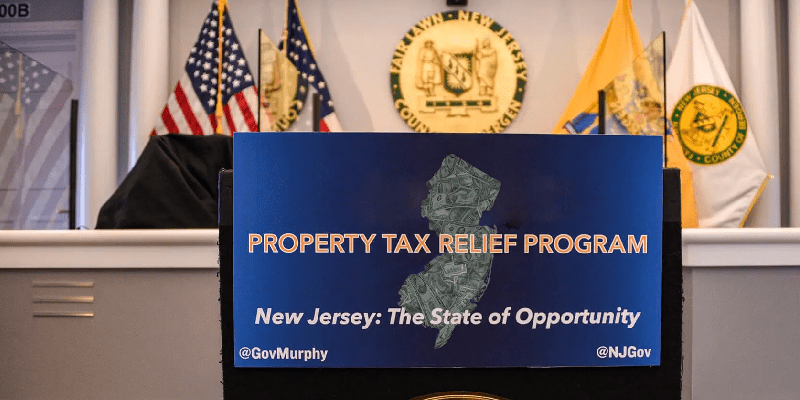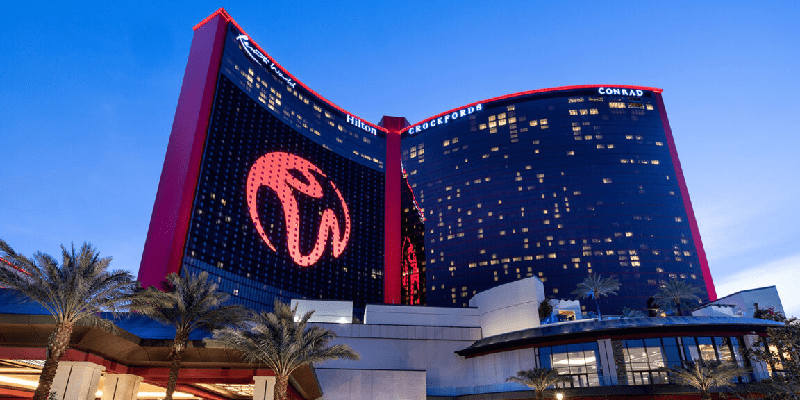The New Jersey House Committee on Tourism, Gaming, and the Arts advanced a bill yesterday (November 14) to outlaw prop bets on collegiate athletes. It is quite probable that the bill is a reaction to the NCAA's efforts to get all US states outlaw such wagers.
Gambling businesses, meanwhile, have maintained for some time that outlawing wagers of any kind would drive customers to illegal betting sites. Companies and states will lose money because of that. Additionally, it endangers customers.
“Player propositions are available on illegal and offshore sportsbooks and removing customers' ability to place legal wagers will deter bettors from moving to the regulated market,” stated Joe Maloney, senior vice president of strategic communications at the American Gaming Association, in an interview with iGB that took place in May.
Prop bets on collegiate athletes are illegal in thirteen US states. That was always a part of the legislation or laws in some places, like Massachusetts. In reaction to the NCAA's request, several states, like Ohio, implemented the prohibition.
It was approved by the New Jersey assembly committee without a single dissenting vote.
Threats levelled at Polymarket
The bitcoin prediction market Polymarket, which accepted bets on the US election, has had a very eventful week. And that's saying something. The FBI allegedly conducted a raid on the New York City apartment of founder Shayne Copler on November 13th, as reported by various media outlets. The raid occurred about six in the morning local time.
The raid was allegedly "political retribution" from the Biden administration, according to a Polymarket representative. In a tweet, Coplan also made a similar suggestion:
The US Department of Justice (DoJ) is reportedly investigating Polymarket for allegedly accepting wagers from US citizens, according to Bloomberg. The largest prediction market in the world, Polymarket, is located in the United States, but American residents are not allowed to wager on it. The DOJ and FBI are reportedly wondering if Polymarket was ever a "unlicensed commodities exchange," as reported in the New York Times.
Since Kalshi gained the legal right to provide election betting to Americans earlier this year in a federal court, the practice has been in the spotlight. Bets on candidates and issues on the US presidential vote on November 5th totalled almost $700 million (£554 million/€663.7 million) on that site.
Is it possible for the Ohio tax rate to decrease?
In December 2021, lawmakers in Ohio legalised internet sports betting, and they imposed a 10% tax rate. The debut of betting was delayed until January 1, 2023, and governor Mike DeWine doubled the tax rate to 20% in the six months following the launch.
The two-page Senate Bill 190, proposed by Senator Niraj Antani towards the end of last year, would have restored the tax rate to 10%. The first hearing for the measure was held on November 12th. Antani stated in his evidence before the Senate Finance Committee that he would like to see the state's tax rate drop to 6.75 percent, which would put it among the lowest in the country, but that a return to 10 percent would be "reasonable."
We are sixth among the 38 states that allow sports betting, with a percentage of 20%. "Iowa and Nevada have the lowest rates in the nation, which is three times lower than ours," Antani added. Kentucky, Michigan, Indiana, and West Virginia—all states that border us—now have much lower tax rates. Because of this, we are severely disadvantaged on a national and regional scale.
Among the states and DC that have legalised gambling, 19 have tax rates of 15% or lower, 7 have rates ranging from 15.1% to 20%, and 6 have rates over 20.1%. Tribes that provide exclusively in-person gambling are exempt from paying gambling taxes in states like Wisconsin and New Mexico.
Another gambling law is also being considered by Antani. Online casinos would be made legal under his Senate Bill 312. Additionally, that measure is still in the finance committee, where it has failed to make any progress.
New Jersey is home to Bally's integrated platform.
According to PlayUSA, on November 13th, Bally's debuted its first online casino and sportsbook platform in New Jersey. With White Hat Gaming at the helm, the app makes it easy to switch between the app's sportsbook and casino features. In addition, the business unveiled a universal wallet that supports all forms of gambling.
"This unified platform combines our existing apps' features and functionality, offering New Jersey players a seamless sports and casino betting experience," North American CEO Brett Calapp said via press release. In order to make playing Bally Bet more enjoyable for each individual, "improving the player experience" is still a top priority.
At this time, the new platform is limited to the Garden State.
ROGA selects Board of Advisors
Dave Rebuck, a former regulator in New Jersey, and Cathy Judd-Stein, a former chair of the Massachusetts Gaming Commission, were appointed to the initial advisory board of the Responsible Online Gaming Association (ROGA). On 11/ 12/, ROGA announced it. According to a press release, the purpose of the advisory board is to provide advice on "responsible gaming-related topics such as the latest industry and regulatory concerns, best practices, consumer behaviour, research developments and technology that may impact the gaming industry," among other things.
ROGA was created in March and includes the following companies: Penn Entertainment, FanDuel, Hard Rock Digital, DraftKings, Bet365, BetMGM, Fanatics Betting & Gaming, and Bally's.
Returning to ROGA's board of directors are Drs. James Whelan and Kahlil Philander, who were previously regulators. Philander is an assistant professor at Washington State University's School of Hospitality Business Management, and Whelan is the executive director of the Tennessee Institute for Gambling Education.
In early 2025, ROGA intends to launch its first campaign, which aims to educate college-aged students about gambling and financial literacy.
First NBA-IR complex approval for LVXP
An integrated resort (IR) with an NBA arena was initially approved on November 12 by LVXP, a real estate development firm based in Las Vegas. With a single vote, the Winchester Town Advisory Board gave its stamp of approval. Although additional permits are still required, the plan has now advanced to the Clark County commission. The concept for LVXP includes the tallest structure in Las Vegas and an NBA arena with 18,000 seats. The north end of the Strip is the projected location for the IR.
An animated version of the concept was also unveiled by LVXP:
Also in the headlines...
Sportslice reports that DraftKings has established a new revolving credit line in the amount of $500 million. The business will have access to cash and could perhaps save money thanks to the credit line's favourable terms and reduced interest rate. Credit line extension is being done by a group headed by Morgan Stanley.
On November 8th, the Venetian Hotel on the Las Vegas Strip and California's Pechanga Resort Casino announced a cooperation. Customers of both resorts will now be able to take advantage of the perks, amenities, and casino clubs at both sites thanks to this so-called "first-of-its-kind" collaboration.
The creation of an official seal for legal wagering companies in the state of Massachusetts was announced on November 13th by the Massachusetts Gaming Commission. An MGC press statement states that operators will be required by the commission to display the seal on their platforms starting this month.
In a news statement dated November 14th, BetMGM announced that their agreement with the Las Vegas Golden Knights has been extended. The new agreement will be in place until the 2026–27 season and will cover fan experiences, co-branded material, and promotions.
The Albuquerque Journal reports that the Sandia Resort & Casino's 10,000 square foot casino opened to the public on November 13th. With plans to accept bets as high as $8,000 at teller windows, the proposed Sandia sportsbook will have the highest betting limits in the state.




























